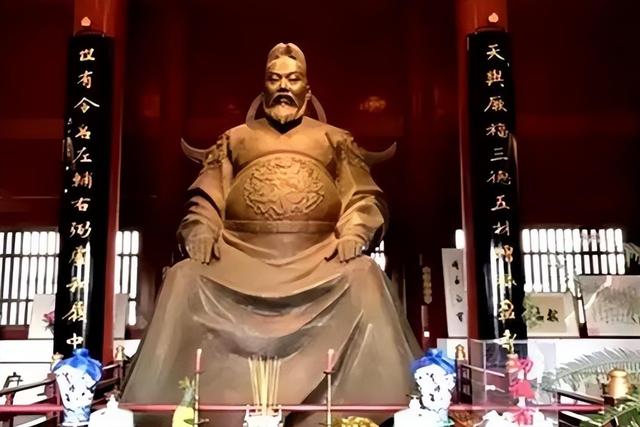The outbreak of the Xinhai Revolution marked the beginning of China’s formal transition into the modern democratic republic era, which we call the Republican era. However, from the beginning of the Xinhai Revolution until the nationwide resistance against Japan in 1937, it was an extremely chaotic period. Across the country, various warlords are engaged in chaotic battles, vying for power and profit, and the flames of war are raging. The common people live in the midst of water and fire. For the sake of profit and survival, many warlord groups have emerged in various parts of China. Do you know which four warlords were powerful during the Republican era? These warlords dominate a territory and establish themselves as kings. Below, the editor of the History Encyclopedia website will introduce it to you.

1. The Prince of Northeast China was Zhang Zuolin, who was the most powerful and famous warlord at that time. Zhang Zuolin was a native of Fengtian and a warlord leader of the Beiyang Fengtian clique. He assisted the Qing court in suppressing bandits and served as the governor of Fengtian. Later, he became the leader of the Beiyang clique and during the Second Zhili Fengtian War, he became the commander-in-chief of the navy and army, reaching his peak in strength and becoming the highest ruler at that time. After being defeated by the Northern Expedition, he retreated to Northeast China. Due to Zhang Zuolin’s strength, the Japanese army dared not invade Northeast China, so they created the “Huanggutun Incident” and killed him, which was succeeded by his son Zhang Xueliang.
2. The Northwest King is General Feng Yuxiang, who has a tough personality and is known as the “General in Cloth Clothes”. Participated in the Luanzhou Uprising in 1911, served as the Governor of Shaanxi in 1921, and later joined the Northern Expedition Army. In 1935, he was elected as the Vice Chairman of the National Army and became Chiang Kai shek’s sworn brother. In the face of Japan’s invasion of China, he also actively resisted Japan. After the founding of the country, I originally wanted to continue serving the country, but a ship caught fire and died on the way, at the age of 66.
3. The Southeast King was a direct warlord named Sun Chuanfang. He is from Tai’an, Shandong. He came from a poor family at a young age and lived under the care of others. Through his own efforts, he obtained the opportunity to study abroad in Japan and graduated from the Japanese Army Noncommissioned Officer School. In 1925, he served as the commander-in-chief of the Jiangnan Five Provinces Allied Forces, with hundreds of thousands of troops. However, due to the organization of troops to prevent the Northern Expedition, his strength greatly decreased thereafter. Having national integrity, he refused to cooperate with the Japanese army and their unreasonable demands in the face of various temptations, but was ultimately executed.

He is a rising star among the Beiyang warlords, born into a righteous family and skilled in discovering and valuing talent cultivation. At that time, as long as you had real strength, you could be hired by them regardless of local provinces. For this reason, his army had grown rapidly, and soon after, with his intelligence and cunning, he became the leader of the new direct line, the United Front and the United Front.
4. The Southwest King was Tang Jiyao. He is a native of Yunnan and a warlord leader of the Yunnan clique. Like Sun Chuanfang, he studied abroad in Japan and graduated from the same school. After returning to China, he participated in the National Protection Movement and declared Yunnan’s independence,. During the 14 years of governance, many measures were taken to benefit and develop Yunnan, which played a significant role in the overall development of Yunnan. However, he is also one of the most controversial figures in modern times.
Because during his later reign, he lacked ambition and indulged in a comfortable environment. He had little management over military and political affairs, and handled them in a biased manner. In the end, military and political affairs were in chaos, and many of his subordinates were dissatisfied with him. But it cannot be denied that he has made achievements.


